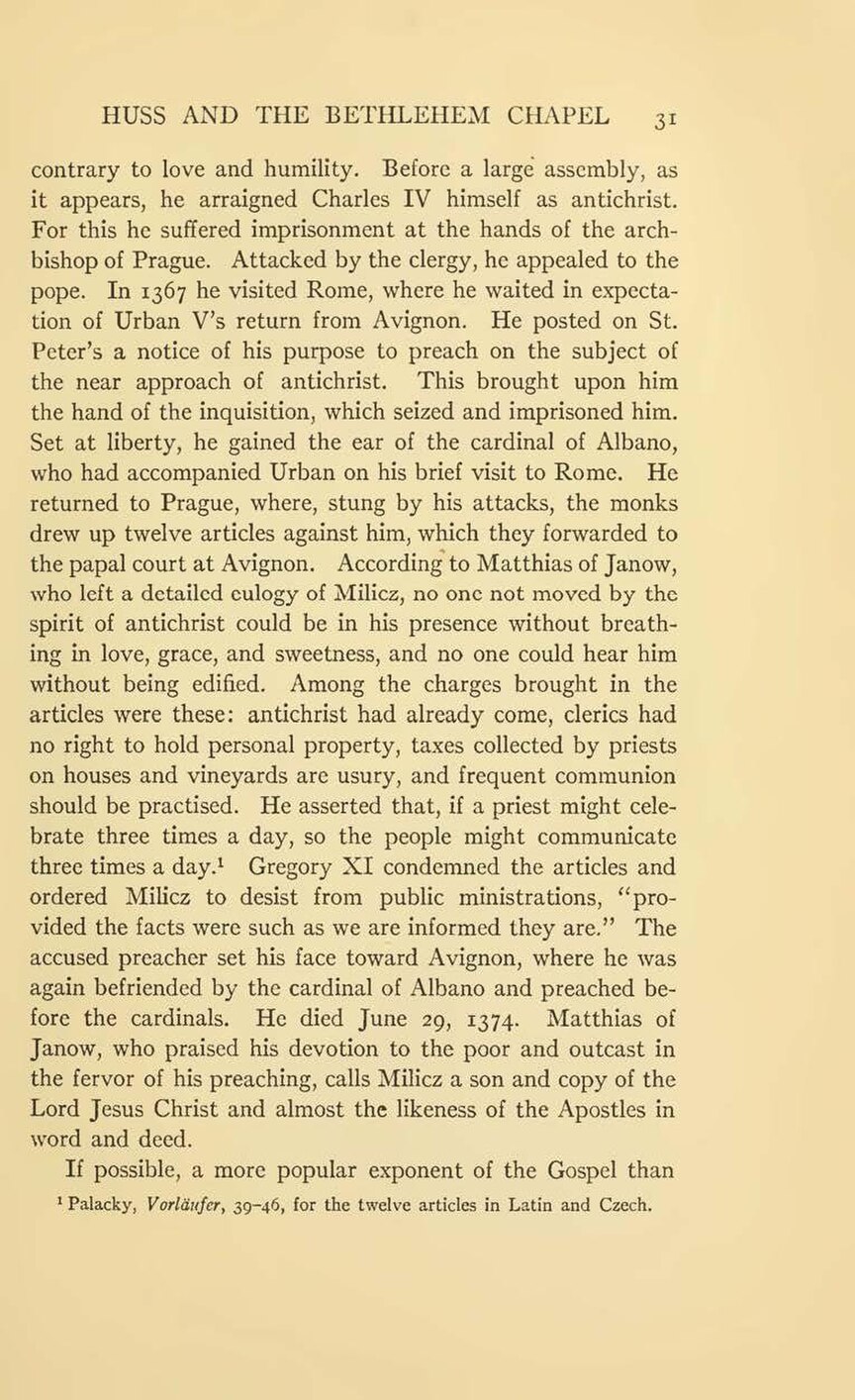contrary to love and humility. Before a large assembly, as it appears, he arraigned Charles IV himself as antichrist. For this he suffered imprisonment at the hands of the archbishop of Prague. Attacked by the clergy, he appealed to the pope. In 1367 he visited Rome, where he waited in expectation of Urban V’s return from Avignon. He posted on St. Peter’s a notice of his purpose to preach on the subject of the near approach of antichrist. This brought upon him the hand of the inquisition, which seized and imprisoned him. Set at liberty, he gained the ear of the cardinal of Albano, who had accompanied Urban on his brief visit to Rome. He returned to Prague, where, stung by his attacks, the monks drew up twelve articles against him, which they forwarded to the papal court at Avignon. According to Matthias of Janow, who left a detailed eulogy of Milicz, no one not moved by the spirit of antichrist could be in his presence without breathing in love, grace, and sweetness, and no one could hear him without being edified. Among the charges brought in the articles were these: antichrist had already come, clerics had no right to hold personal property, taxes collected by priests on houses and vineyards are usury, and frequent communion should be practised. He asserted that, if a priest might celebrate three times a day, so the people might communicate three times a day.[1] Gregory XI condemned the articles and ordered Milicz to desist from public ministrations, “provided the facts were such as we are informed they are.” The accused preacher set his face toward Avignon, where he was again befriended by the cardinal of Albano and preached before the cardinals. He died June 29, 1374. Matthias of Janow, who praised his devotion to the poor and outcast in the fervor of his preaching, calls Milicz a son and copy of the Lord Jesus Christ and almost the likeness of the Apostles in word and deed.
If possible, a more popular exponent of the Gospel than
- ↑ Palacky, Vorläufer, 39–46, for the twelve articles in Latin and Czech.
